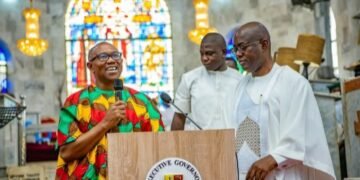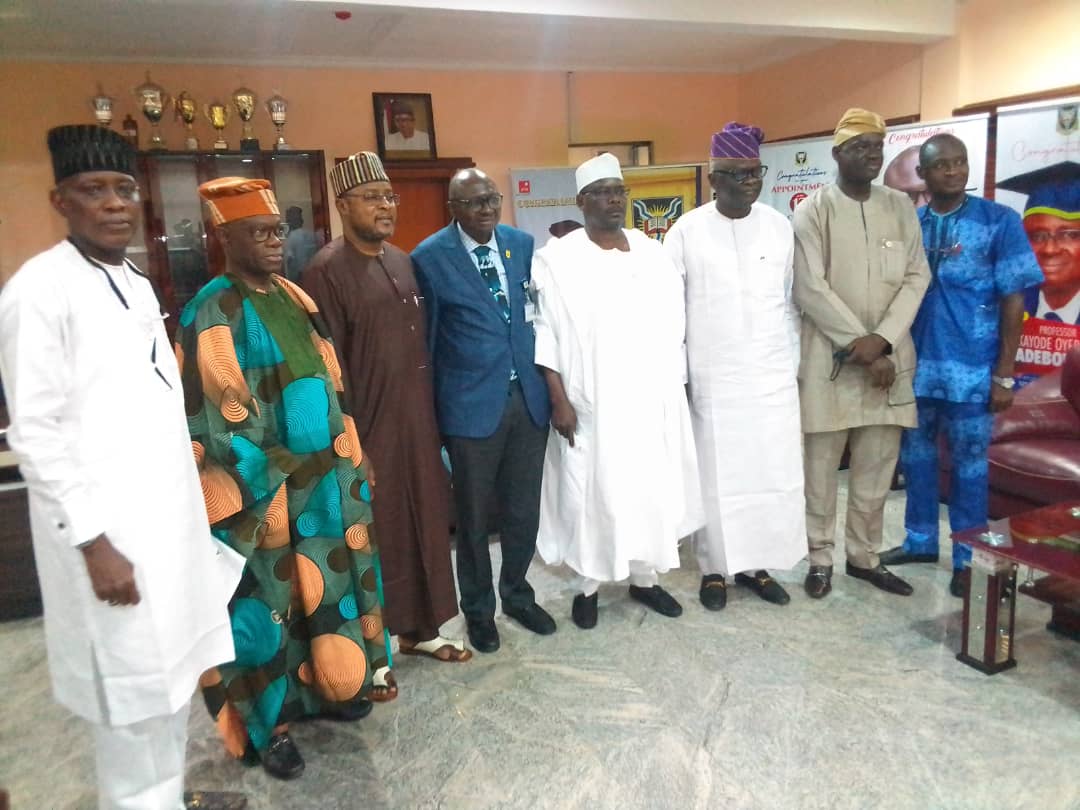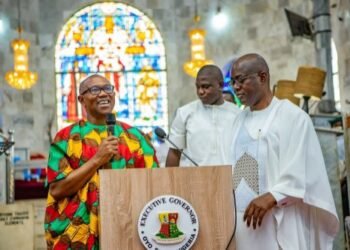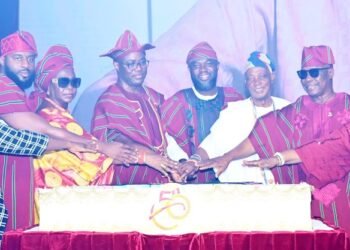War Against Unexplained Wealth Can Be Won From Top-Ndume
Senator Muhammed Ali Ndume has said the war against unexplained wealth in the country can be won, if the fight against corruption is started from the top to the bottom.
He said this while speaking as the Guest Lecturer at the 2021 Distinguished Leadership Lecture Series of the University of Ibadan, noting that toxic riches must be abhorred by all.
Ndume, who spoke on “The Unexplained Wealth And The Fight Against Corruption In Nigeria”, said corruption and insecurity are closely bound with the funding of transnational organised crimes like terrorism, human trafficking, drug crimes and illegal arms trade.
The chairman of the Senate Committee on Army said unexplained wealth means “having property, money, bond, or instrument of economic value that has not been legitimately acquired in accordance with the laws of the land or international law.”
Ndume, who represents Borno South Senatorial District, said “the fight against corruption is fight for the nation and must start from the top to the bottom. This is what I call ‘do it all’.
“One should not be mistaken on how good it is to have riches, but toxic riches should be abhorred because it pollutes the society. It changes our good culture. It breeds injustice and impunity.”
“Every citizens has a role to play. To this end, there is the need to look at the incidence of corruption, most especially those occasioned by public officers who are in trust of public health.
“It is my view that the need for the President [Muhammadu Buhari] to urgently issue and sign an “Unexplained Wealth Order” and prevail on the National Assembly to pass the Proceeds of Crime Bill in time, regardless of the bickering on the management of the proceeds recovered.
“Our crusade against this monster should start from the politicians, top public servants, civil servants, down to local government staff.
“For the perpetrators, it is not difficult to identify the tendencies exhibited by these officials: acquiring landed property in and outside the country, having fat bank deposits, buying expensive cars, or marrying so many wives, etc.”
Senator Ndume also called on the security agencies, the Independent Corrupt Practices and Other Related Offences Commission (ICPC), the Economic and Financial Crimes Commission (EFCC) and the Department of State Security (DSS) to take whistle blowers seriously.
“In the line of duty, they should carry out investigation on such matters, no matter how casual it may be. Their officers at the local level should, as a matter of fact, have the same eyes as that of whistle blowers,” he added.
In his comment, Senator Kola Balogun (Oyo South), said what the National Assembly sees during budget presentation and defence is mind-boggling, in terms of corruption in public institutions.
He said: “On corruption, Nigeria is already dead. It is standing at the gate of the mortuary of the University College Hospital (UCH), Ibadan.”
Senator Balogun, however, said there is still hope for the country, if credible leaders emerged and if the judiciary and the anti-corruption agencies are truly independent, noting that the political system is also too expensive and, as such, allows for corruption.
Earlier in his welcome address at the lecture, Vice Chancellor of the University of Ibadan, Professor Kayode Adebowale, said various reports have indicated that Africans are not as pathologically and incurably corrupt as being portrayed in the international media.
He cited the report, last October, of Emmanuel Tuloe, a poor 19-year-old Liberian who was handsomely rewarded by President George Weah for returning the sum of $50,000 which he found.
Professor Adebowale also cited various other reports, including that of Mallam Tulu, a Keke NAPEP driver in Jos, Emmanuel Eluu, an airport driver in Lagos, Mallam Umar Kiri, a commercial driver in Yobe State and Yinka Adeniyi, another airport driver in Lagos, who all returned various amount of money to their rightful owners.
“There are terribly corrupt and wicked people in Africa, no doubt. Yet, Africa can hardly be described as the exclusive continent of such people, not can these people be described as the majority among us.
“And that is why we are gathered here. We are here because we know that accumulation of unexplained wealth is un-African, unjust and that it is a disease that is curable.
“If accumulation of unexplained wealth had been our way of life, we would not be here to discuss it as one of our major national problems,” the vice chancellor of the University of Ibadan said.






























